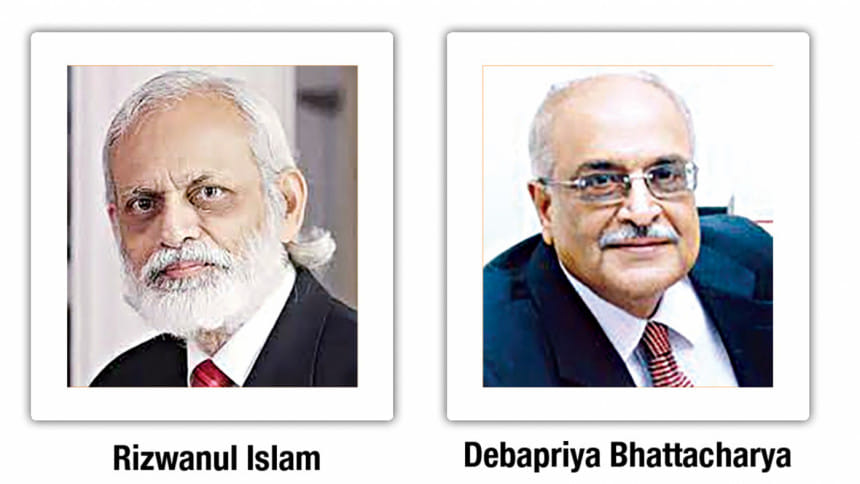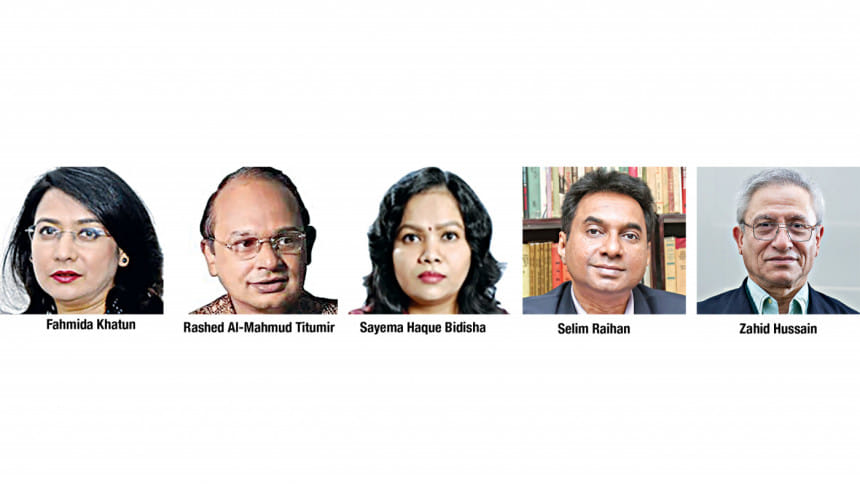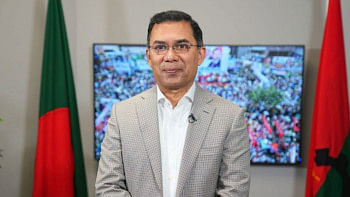It’s unrealistic, unattainable

The proposed budget for 2023-24 is unrealistic and unattainable as the challenges that caused the economic growth to decelerate, foreign exchange reserves to dip and inflation to surge in the past one year still persist, said economists and think-tanks.
In the context of ongoing crisis and problems, the macroeconomic projections announced in the budget are illusional and unattainable, said the Centre for Policy Dialogue (CPD) in its instant budget reaction.
"It is not possible to curb inflation and the price hike with the measures that have been announced," said Fahmida Khatun, executive director of the think-tank.
Rizwanul Islam, a former special adviser of the employment sector at the International Labour Office in Geneva, said the targets for GDP growth of 7.5 per cent and inflation rate of 6 per cent in the current circumstances appear to be quite unrealistic, especially if one bears in mind the kind of policy interventions that would be needed to bring down the inflation rate and allow the exchange rate and the interest rate to be determined by the market.
"By the way, the latter is part of the conditions of the loan taken from the IMF."
He said the architects of the budget should have adopted an alternative approach of macroeconomic stabilisation with a lower rate of GDP growth, gradual reduction of the inflation rate and greater support for the poor and vulnerable.
"The proposed budget can't be considered pro-people," said Selim Raihan, executive director of the South Asian Network on Economic Modeling, a think-tank.
"I don't see any possibility of the inflation rate going down to 6 per cent in the next fiscal year as the present condition is not favourable."
He said the budget would face big challenges in stabilising the macroeconomy and controlling inflation.

Raihan criticised the budget proposal on fixing a Tk 2,000 in minimum tax for individuals who are required to submit income tax returns to avail various government services even if they don't have taxable incomes.
"The low-income people who have taxpayer identification numbers will be under pressure due to the minimum tax."
Debapriya Bhattacharya, a distinguished fellow at the CPD, also criticised the government's move to impose the minimum income tax.
"It is unjust, illogical, if not immoral. If a person is not liable for tax, how can you really tax the person? This is a desperate attempt to increase direct taxes."
He said the commitment to the International Monetary Fund (IMF) has been embedded in the budget policy framework.
According to the budget speech of the finance minister, the government will go for making the exchange rate and the interest rate on loans market-based, which is in line with the suggestions attached by the IMF with its $4.7 billion loan programme.
"It will also change the monetary policy approach from credit targeting to inflation and there are also attempts to improve the revenue intake," Debapriya added.
Rashed Al Mahmud Titumir, a professor at the Department of Development Studies at the University of Dhaka, said the cost of living has gone up as the prices of almost all products and services surged, eroding the purchasing power of the common people.
On the other hand, the income of people did not increase, he said, adding that the cost-of-living crisis was not addressed in the budget.
Zahid Hussain, a former lead economist of the World Bank's Dhaka office, called the budget expansionary since the proposed size is higher than the revised one and in terms of GDP, and the deficit is higher than in the current fiscal year.
The expansionary budget is not consistent with a macroeconomic scenario where inflation is running high and there is a dollar crisis, he said.
"The higher deficit will compound pressure on inflation and the reserve and it will worsen the crisis, let alone addressing it."
He said the budget has given benefits to the rich.
He explained the ceiling against which the super tax would be applicable has been raised to Tk 4 crore from Tk 3 crore.
Similarly, individuals whose income stood at Tk 50 crore have had to pay 35 per cent in surcharge. Now, the same rate will be applicable to those with an income of Tk 100 crore, he said.
"In Bangladesh, the number of people who earn Tk 100 crore per year is limited. So, this will ultimately benefit the rich."
Zahid Hussain said there were expectations that structural reforms would be proposed in the area of a cashless society and digitalisation. Such reform proposals are not visible except the one related to the universal pension scheme.
The scheme will be launched in 2023-24.
Sayema Haque Bidisha, a professor of economics at the University of Dhaka, said the government has kept subsidies in the agriculture sector despite a condition of the IMF that aims at reducing subsidies.
"The government's decision is logical because of the ground reality."
Rizwanul Islam said the allocation for social protection has remained a subject for discussion because it includes items like pensions and subsidies in certain areas. One has to separate out the amount that is meant for real social safety nets aimed at the poor and see what is happening to that amount.
"Furthermore, one has to look carefully at who actually benefits from the funds allocated for such programmes because they are notorious for inclusion and exclusion errors."


 For all latest news, follow The Daily Star's Google News channel.
For all latest news, follow The Daily Star's Google News channel. 



Comments